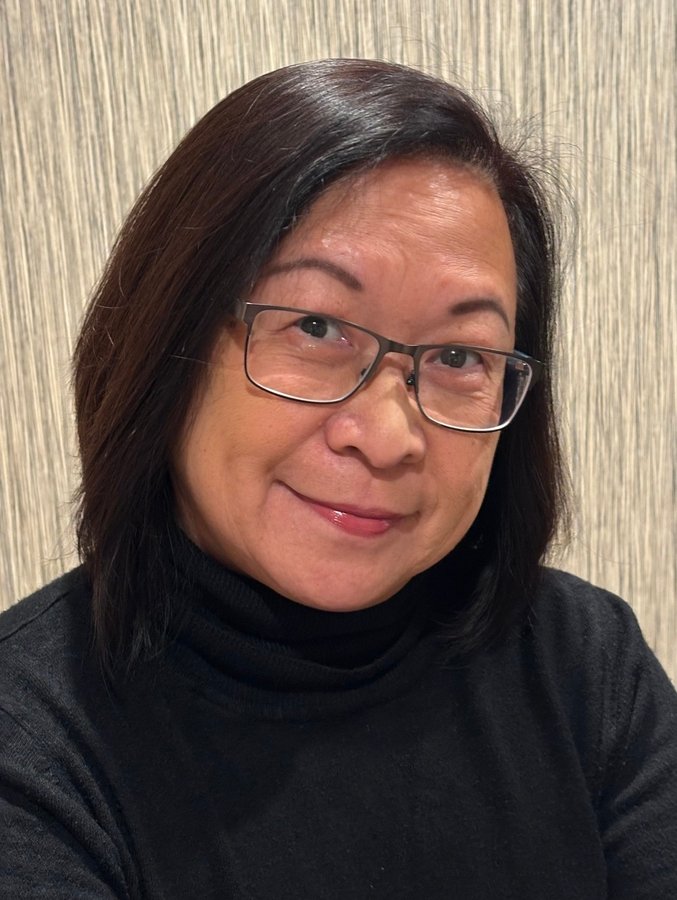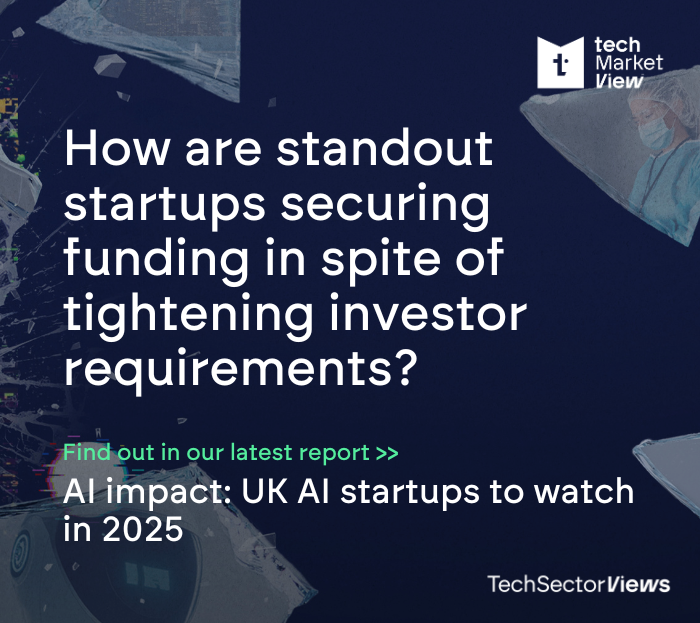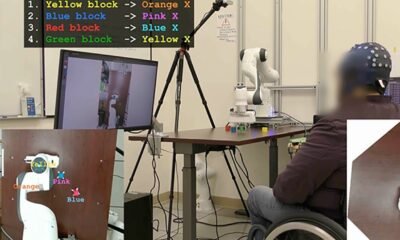AI Research
A.I. is making your writing worse—but not in the way you think.

Sign up for the Slatest to get the most insightful analysis, criticism, and advice out there, delivered to your inbox daily.
The other week, I was reading an email I’d written when a strange notion occurred to me. Upon seeing a small typo, I hesitated for a moment before correcting it. Would it perhaps be better, an unsettling new voice suddenly whispered, to leave it in?
This is a thought that would’ve appalled me a year ago. As a professional writer, I have long prided myself on impeccable grammar, judiciously wielded punctuation, and (at times indulgent) verbosity. But in the age of A.I. paranoia—when the comment sections of social media posts and online articles are littered with accusations decrying the dehumanizing warp of ChatGPT—suddenly, writing that appears too polished, too bedecked with literary devices, not to mention a dubious affinity for the word delve, now arouses suspicion.
In personal communications, I began to experience a newfound self-consciousness. Was that em dash really necessary? Was the voice perhaps a little impersonal? It went the other way too; any writing I encountered digitally was now subject to the same interrogation. Was there something about it that felt just a little bit uncanny? A little bit … ChatGPT?
And I’m not alone. A collective paranoia has people purging so-called A.I. tells from their prose, even if they penned it entirely with their human brains. Along with the now-infamous em dash, many are renouncing words for which ChatGPT is known to have a mysterious penchant, such as delve, nestled, boast, and meticulous. The structural device “It’s not just X, it’s Y”—now considered a flashing A.I. warning sign—is being surrendered en masse.
Describing his oversensitive “AI radar,” University of Illinois English professor John Gallagher said he had found himself convinced an academic article had been penned by A.I.—before realizing that it was published in 2019, predating the ChatGPT boom. Across different media, senses sharpened by TikToks detailing the latest “tells,” A.I. inquisitors are ready to pounce. “Writing online in 2025 feels like performing keyhole surgery while people scream ‘ROBOT! ROBOT! ROBOT!’ into your ear,” writer and coder Jack McNamara wrote recently of the phenomenon on Medium.
A growing number of people are forgoing formal writing conventions altogether for an unadulterated stream of consciousness—anything to preserve and insist upon their humanity. But as A.I. continues to improve, are we destined to lose this linguistic arms race? And are we at risk of sacrificing good writing along the way?
An unlikely consequence of all this has been the elevation of the once embarrassing typo. Until recently considered a sign of carelessness or even stupidity, the error is now seen by some to be the indelible fingerprint of a human wordsmith. Writer and entrepreneur Thomas Smith told me that although he refuses to sacrifice the em dash, these days he is inclined to leave typos in his Medium posts because he believes they’re a reassuring sign of human authorship. His audience seems to agree. Readers used to email Smith to point out minor typos. They’ve begun to add “But maybe you want to keep it in,” he says with a laugh.
Content strategist Larissa McCarty, whose role involves ghostwriting on LinkedIn, has undergone a similar shift in thinking. She told me she’s now heartened to encounter a light speckling of human error in copy and would go so far as to advise professionals to leave small mistakes in public posts to emphasize their authenticity.
Smith, who is also a part-time copywriter, says brands have requested he jettison all em dashes from his work, due to fears that anything that “looks like A.I.” could result in a downgrade from Google’s opaque SEO ranking system. Meanwhile, lists of “ChatGPT words to avoid” circulate in web publishing communities, and advice on how not to sound like a chatbot abounds on LinkedIn, TikTok, and Reddit.
Worryingly, this can have the effect of undermining otherwise strong writing. Some of the supposed tells are simply well-established writing conventions that ChatGPT was trained to ape: things like “lists of three examples” or the use of transition words like however.
“I know that there are techniques and methods to make your writing more engaging, but that’s also what ChatGPT uses,” said McCarty. “When I’m typing something up, I’m like, Oh, that’s a good idea for how to word that. But then, in the back of my mind, I’m like, It’s almost too good.” She now avoids writing her own metaphors, for example, because she thinks that this is something ChatGPT excels at.
An inherent suspicion of good writing is probably anathema to producing good writing. Although reflecting more deeply on how we write isn’t necessarily bad, this A.I.–fueled self-censorship has the potential to be corrosive. As with much of the ChatGPT fallout, students were among the first to encounter this A.I. paradox: where polished, proficient prose is demanded but can also raise suspicion, whether produced with the help of a chatbot or not.
A recent academic paper from a Hult International Business School researcher on this inherent tension noted that Montclair State University had instructed faculty to view good grammar as suspect. “A.I.-written essays tend to be atypically correct in grammar, usage, and editing,” the school had advised staff.
This all stems from a broader stigma around the use of A.I. For all the industry hype whirling around the technology, a growing number of academic papers highlight the phenomenon of “A.I. shaming.”
A 2025 Duke University study found that professionals believed that colleagues would consider them lazier and less competent if they used A.I., making them unlikely to disclose its use. This anticipated social penalty was real.
This is because, in contrast to older workplace productivity tools like Excel, generative A.I. isn’t seen as requiring specialized skills, Jessica Reif, the lead author of the study and a Ph.D. candidate at Duke’s Fuqua School of Business, told me. But even as we resist it, there are signs that our efforts to outrun ChatGPT’s incursion are doomed. While we might pluck “ChatGPT words” from our prose, there is evidence that A.I.’s empty lexicon is lodging itself somewhere more intimate: in our minds. A 2025 study from researchers at the Max Planck Institute for Human Development determined that podcasters and YouTubers have lately been parroting A.I.’s favorite words, including delve. This trend took off after the launch of ChatGPT and holds even for spontaneous, unscripted conversations.
What’s more, our tool bag of A.I. tells is likely to be only “transiently useful,” says Daphne Ippolito, an assistant computer science professor at Carnegie Mellon University. “Companies are constantly revising the recipes for their training data, so all of these trends are going to change,” she said.
Even as A.I. promises to improve, not everyone is fearful of the future. Smith has enjoyed seeing fellow writers embrace more personalized, stream-of-consciousness-style prose in recent months, with some even joking they can now get away without rigorous editing.
The imperatives of SEO are what helped popularize a slick and impersonal style in the first place, Smith points out. “Certainly, algorithms always elevated that kind of stuff.” He thinks the future will be about “trying to share ideas rather than worrying about form.”
And rather than undiscerningly scouring ChatGPT tics from our prose, we can use them as cues to introspect. Gallagher, the English professor, wrote that he has tried to reduce his reliance on lists, not just to avoid sounding like ChatGPT “but also to be diligent about my word choice.”
As for me, I couldn’t quite bring myself to leave a typo in that email. But the next time it happens organically, I don’t think it’ll bother me as much as it once would have.
AI Research
Marquis Who’s Who Honors Sandra E. Cheung, PhD, for Expertise in Artificial Intelligence

Marquis Who’s Who Honors Sandra E. Cheung, PhD, for Expertise in Artificial Intelligence
Sandra E. Cheung promotes AI literacy and drives technology transformations
She aims to cultivate artificial intelligence literacy among communities across the United States by planting seeds of knowledge that encourage individuals to manage future technology challenges.
BELMONT, CA, September 10, 2025 /24-7PressRelease/ — Sandra E. Cheung, PhD, has been included in Marquis Who’s Who. As in all Marquis Who’s Who biographical volumes, individuals profiled are selected on the basis of current reference value. Factors such as position, noteworthy accomplishments, visibility, and prominence in a field are all taken into account during the selection process.
Dr. Cheung is a distinguished leader in the technology and engineering sectors. Inspired by the emergence of artificial intelligence in the technology sector, she launched AImpowered in 2025, and the nonprofit organization has since been dedicated to educating people on safe and effective use of AI. As the chief executive officer of the firm, she has been instrumental in shaping the organization’s mission to bridge the digital divide and promote AI literacy, and she manages project timelines, coordinates meetings, implements key strategies, and monitors performance. Dr. Cheung also oversees budget expenditures, ensures compliance, and expertly supports her associates in their innovative pursuits.
Through AImpowered, Dr. Cheung offers workshops tailored for both children and adults, emphasizing the importance of in-person interactions for those affected by technological barriers. She is particularly dedicated to supporting individuals who struggle with technology, equipping them with the necessary tools to navigate the evolving landscape of AI. Dr. Cheung is also proud to curate content that helps parents gauge the influence of AI on home and school environments and to promote advocacy for children’s education in this field.
Drawing from her own experiences raising children during the rise of mobile phones, Dr. Cheung aids parents in grasping contemporary challenges posed by rapid technological advancement. Additionally, she prioritizes platforms that empower current technology workers to harness AI in their work. Notably, Dr. Cheung’s efforts through AImpowered prepare both parents and professionals to thrive in an increasingly AI-driven world.
In her comprehensive role, Dr. Cheung relies on experience gained from a series of pivotal professional appointments. From 2021 to 2024, she was the chief of staff and head of operations, strategy and planning at Webex, where she held oversight of operational efficiency and strategic initiatives that supported the company’s growth in collaborative technologies. Between 2018 and 2020, Dr. Cheung excelled as the director of software engineering at Cisco, and her signature leadership was pivotal in driving software development projects that enhanced Cisco’s product offerings.
From 2012 to 2018, Dr. Cheung provided technology and management consulting services at Cadushi, advising organizations on optimizing their technological infrastructure and management practices. Additionally, during her tenure as the senior director of infrastructure engineering and production operations at Yahoo! from 2005 to 2012, she played a critical role in addressing a significant crisis related to data center capacity amid financial constraints. Drawing inspiration from Yahoo!’s engineers, she collaborated with leadership to drive innovation among the company’s teams, inspiring others to look beyond conventional methods and galvanizing teams around a shared vision.
Before joining Yahoo!, Dr. Cheung was the director of network planning, design and analysis at Covad from 2003 to 2005, before which she served as the director of network engineering at Covad Communications from 1998 to 2003. In these positions, she oversaw network infrastructure development and strategic planning. Dr. Cheung began her professional journey in 1994 as a senior member of technical staff at AT&T, where she thrived through 1998.
The pursuit of service opportunities prompted Dr. Cheung to accept an appointment as the co-chair of the engineering council at Founders Creative in 2025, through which she contributes her expertise to foster innovation within the organization. Her commitment to promoting and advancing women in various fields is reflected through her membership in Women in Collaboration and her substantial leadership tenure with the Girl Scouts; additionally, Dr. Cheung is a proud co-founder and the acting president of the Silicon Valley Ice Skating Association.
Dr. Cheung’s academic credentials are impressive and include a Bachelor of Science in computer science from Florida Institute of Technology, which she completed in 1988. She also holds a Doctor of Philosophy in computer science from the University of Florida, which she proudly earned in 1993. Dr. Cheung credits her adaptability and dedication to making a positive impact on others as central to her success across diverse personal and professional platforms.
Looking toward the future, Dr. Cheung aims to cultivate artificial intelligence literacy among communities across the United States by planting seeds of knowledge that encourage individuals to manage future technology challenges. She emphasizes education as a foundation that must extend throughout all stages of learning so that younger generations can navigate change without anxiety while remaining grounded in core human values. Through her initiatives, Dr. Cheung seeks to foster collaboration and help people embrace transformative advancements.
About Marquis Who’s Who®:
Since 1899, when A. N. Marquis printed the First Edition of Who’s Who in America®, Marquis Who’s Who® has chronicled the lives of the most accomplished individuals and innovators from every significant field of endeavor, including politics, business, medicine, law, education, art, religion and entertainment. Who’s Who in America® remains an essential biographical source for thousands of researchers, journalists, librarians and executive search firms around the world. The suite of Marquis® publications can be viewed at the official Marquis Who’s Who® website, www.marquiswhoswho.com.
# # #
AI Research
Manufacturing AI Alliance unites 1,000 industry, academic, research entities – 조선일보
AI Research
*NEW RESEARCH* AI Impact: UK AI startups to watch in 2025

© TechMarketView LLP 2007-2025: Unauthorised reproduction prohibited see full Terms and conditions.
-

 Business2 weeks ago
Business2 weeks agoThe Guardian view on Trump and the Fed: independence is no substitute for accountability | Editorial
-
Tools & Platforms4 weeks ago
Building Trust in Military AI Starts with Opening the Black Box – War on the Rocks
-

 Ethics & Policy1 month ago
Ethics & Policy1 month agoSDAIA Supports Saudi Arabia’s Leadership in Shaping Global AI Ethics, Policy, and Research – وكالة الأنباء السعودية
-

 Events & Conferences4 months ago
Events & Conferences4 months agoJourney to 1000 models: Scaling Instagram’s recommendation system
-

 Jobs & Careers2 months ago
Jobs & Careers2 months agoMumbai-based Perplexity Alternative Has 60k+ Users Without Funding
-

 Education2 months ago
Education2 months agoVEX Robotics launches AI-powered classroom robotics system
-

 Podcasts & Talks2 months ago
Podcasts & Talks2 months agoHappy 4th of July! 🎆 Made with Veo 3 in Gemini
-

 Education2 months ago
Education2 months agoMacron says UK and France have duty to tackle illegal migration ‘with humanity, solidarity and firmness’ – UK politics live | Politics
-

 Funding & Business2 months ago
Funding & Business2 months agoKayak and Expedia race to build AI travel agents that turn social posts into itineraries
-

 Podcasts & Talks2 months ago
Podcasts & Talks2 months agoOpenAI 🤝 @teamganassi





















